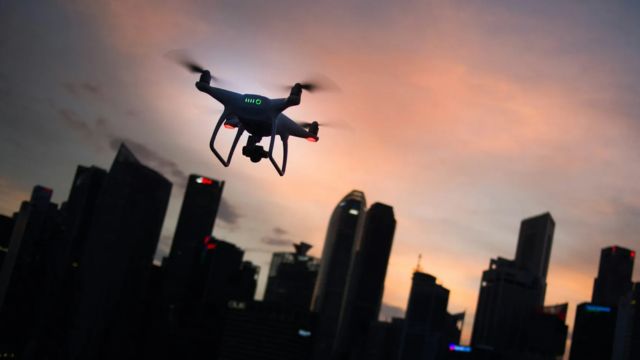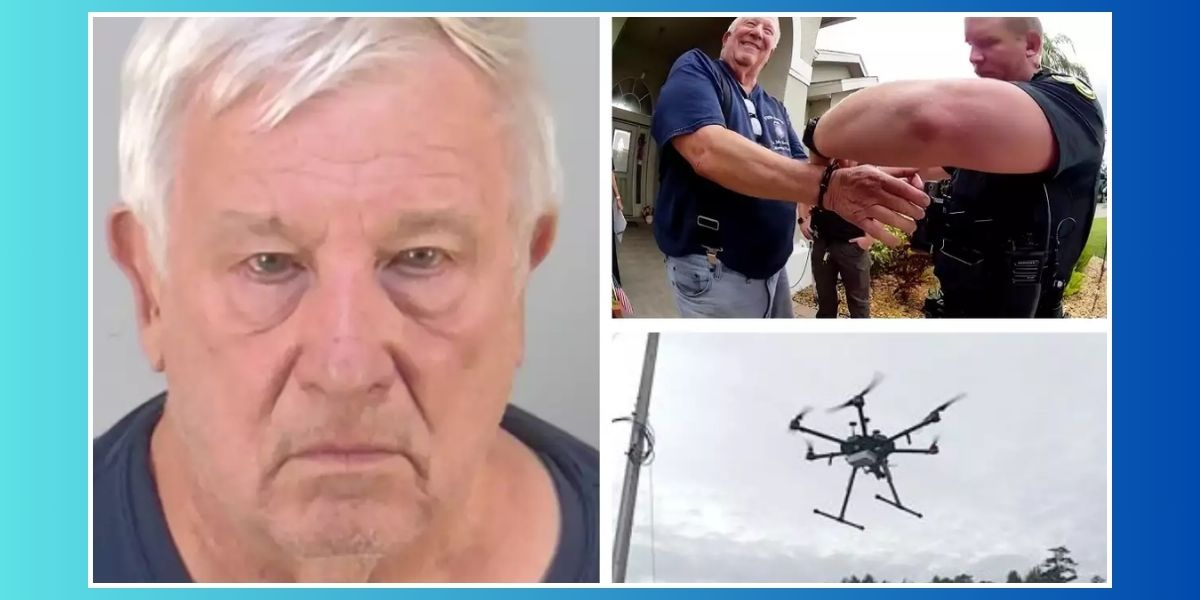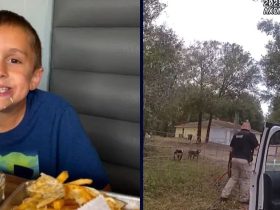WPBN: Following a recent incident involving a man from Florida, the legality of shooting down a drone that is deemed to be a nuisance has come under examination.
A 72-year-old retiree named Dennis Winn learned the repercussions of his actions when he was charged with a crime and had to pay $5,000 in restitution after shooting down a Walmart delivery drone close to his Lake County, Florida, home.
The event happened during Walmart’s simulated delivery trial, which was carried out in association with DroneUp, a business that specializes in drone delivery and logistics. The drone that was being used in this experiment was around 75 feet in the air when it was shot at.
According to reports, Winn, a retired fire captain, shot down the object with his 9mm revolver because he thought it was a surveillance drone watching his property.
Winn then stated that he believed the drone was violating his privacy and that he had no idea why it was there. Walmart and DroneUp, however, made it clear that the drone was a part of a valid delivery trial and did not endanger anyone’s property or privacy.
Because of what he did, Winn was charged with destroying the drone. In addition, he was mandated by the court to reimburse $5,000 for the cost of the destroyed equipment. United States law considers shooting down a drone, for whatever cause, to be a federal felony.
The Federal Aviation Administration (FAA) considers drones to be aircraft, and it is against the law to damage or interfere with an aircraft. Furthermore, firing a firearm in a public area may lead to additional legal issues.
A frequent misconception regarding drones and privacy regulations is brought to light by Winn’s case. Drone activities are governed by the FAA, which also has stringent rules for their use, such as no-fly zones and altitude limitations. It is illegal for someone to shoot down a drone, even if it is thought to be an annoyance.
Authorities advise addressing issues with drone activity by getting in touch with the FAA or local law enforcement instead. This guarantees that any improper or unapproved drone use can be dealt with via the relevant legal procedures.
The incident started on June 26 when Winn noticed a whirring noise while he was cleaning his pool. Fearing monitoring, he pulled out his gun, aimed, and fired a single, accurate shot that hit the drone and disabled it. According to bodycam footage, Winn, who was initially ignorant of who owned the drone, joked, “I must be a good shot,” when confronted by law police.
Walmart was attempting to expand its drone delivery services by using the drone, which is thought to have cost $10,000, to make simulated deliveries throughout the area. Employees of DroneUp claim that the drone was not filming residential properties and was flying at permissible altitudes.

New Law Allows Drones Over Private Property, Shooting Them Down Is Now a Felony
Despite his suspicions, Winn chose to raise his worries to his homeowners’ association rather than law authorities about any previous drone-related incidents. Charges of criminal mischief and public firearm discharge, however, resulted from his activities.
Winn recently consented to a pretrial intervention program in exchange for the charges being eventually dropped. He committed to stay charge-free for six months, perform 25 hours of community service, and reimburse Walmart $5,000 as part of the agreement. Winn’s lawyer made it clear that the compensation was an acknowledgement of responsibility for the harm rather than an admission of guilt.
Winn might have been sentenced to up to five years in prison for the felony accusation and further punishment for the misdemeanor if he had been found guilty.
Ohio Military Base Faces Airspace Shutdown After Drone Sightings, Arrests Made Near Boston Airport
New Jersey drone mystery
The Florida case coincides with an expanding mystery surrounding drones in New Jersey, where anonymous drones have been observed over Somerset and Morris counties.
These sightings have caused serious privacy issues and interfered with operations such as emergency airlifts. While the FBI and other law enforcement agencies are looking into the matter, experts believe that many cases involve misidentified manned planes.
In any event, Winn’s story should serve as a reminder to everyone that it is against the law to shoot drones in the US. Destroying an aircraft, including drones, is punishable by federal law with fines of up to $250,000 and a maximum sentence of 20 years in jail.












Leave a Reply